Football
Nigeria in search for another Jay Jay Okocha
Published
8 years agoon
By
Olu Emmanuel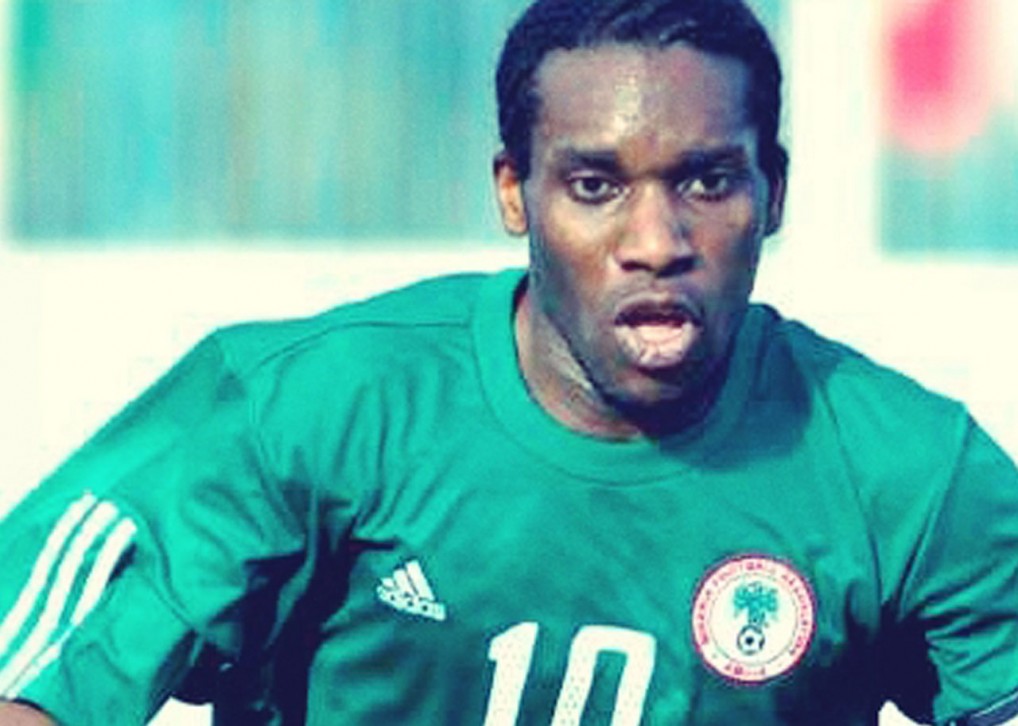
Austin Jay Jay Okocha, a former PSG player who is widely regarded as one of the finest footballers to come out of Africa.
National Daily gathered that Austin describes his rough and tough background as a young footballer growing up in the streets of Enugu, Enugu State Nigeria.
“There were no grass pitches where we lived, so we used to play on the street corner, or wherever else we could find a space.
“The pitches were very bad, but I think that helped me to develop a good technique.
“Because the surface was so rough, you always had to be conscious of your ball control and how you passed the ball.
“When I was 13, I started playing for my school team, the first time I had played under a manager.
“I started realizing that I had to keep to my position and play with some discipline. Before then I was just playing for the sake of playing,” the former Bolton Wanderers player said.National Daily learnt.
Great footballers do not just appear from nowhere. The best footballers in the world, be it Neymar, Mbappe, Leo Messi, or Cristiano Ronaldo, learned their trades at various football academies.
But in Nigeria, a country with over 170 million population, her football talents are honed on the streets with very few making it to lime light.
The lack of proper developmental process for budding young football talents has been the greatest undoing for three-time African champions, Nigeria.
Top European nations like Germany, Spain and Belgium have all at one point or another turned their attentions to youth football development programmes and it paid off.
Germany after suffering an embarrassing Euro 2000 group stage exit instituted a youth football development system that values coaches and nurtures indigenous talent. Fourteen years later they emerged world champions.
Spain’s phenomenal football success in the last 17 years can be attributed to a deliberate policy among the clubs to promote young, home-grown players and within this period they won two European titles and one world cup trophy.
ALSO SEE: Champions League: 30 thoughts on Tuesdays, Wednesdays matches
Belgium, a country with a population of only 11m, with just 34 professional clubs competing across two leagues, have within 15 years of dedicated youth football development produced quality players like Eden Hazard, Thomas Vermaelen, Jan Vertonghen, Thibaut Courtois, Kevin de Bruyne, Mousa Dembélé, Axel Witsel, Romelu Lukaku among others who are currently some of the finest talents in football right now.
There have been efforts made by the Nigeria Football Federation, NFF to institute youth football development programmes in the past but it did not stand the test of time. This is largely because of inconsistency, lack of continuity and little or no sponsorship drive.
An example of this could be seen in 2008 when the then NFF president Alhaji Sani Lulu lunched the NFF U-13 football development programme. Within seven years, this programme gave birth to players like Kelechi Iheanacho of Leicester City, Taiwo Awoniyi of Liverpool, Victor Osimhen of Wolfsburg, Dennis Bonaventure of FC Bragga, Alhassan Ibrahim of Austria Vienna, Chidera Eze of FC Porto.
Unfortunately, since 2010, the NFF youth football development programme has became inconsistent. However in 2016, the NFF now under the leadership of Amaju Pinnick secured a sponsorship deal for the programme and renamed it the Future Eagles.
The Future Eagles sponsored by Zenith bank is being reengineered by NFF’s youth football committee, led by NFF’s first vice president Seyi Akinwunmi.
“We decided that we must have a plan for our youth football, because in times past Nigeria has won and lost. “We won the U-17 FIFA World Cup and the next time we did not qualify, obviously not because of lack of talents.
“So we decided that we should have a youth football policy starting from U-13.
“It involves states producing their best 18 players at the U-13 and U-15 levels for a national championship.
“But the key is not about winning the tournament, it is about selecting the best players from the entire competition for the national U-13 and U-15 teams.
“The talents discovered from the 2016 edition were incredible, Nigeria is ready to take over the world, believe me,“ an obviously elated Akinwunmi said at the unveiling of plans for the 2017 edition of the Future Eagles championship in Lagos, Nigeria.
The zonal finals of the 2017 Future Eagles championship will take place between September 13 and 16.
The group stage matches and semi finals will come up in Kano between 20th -23rd September. The final will be staged in Lagos on a date to be agreed with the sponsors, Zenith Bank.
The 2016 set of Future Eagles U-13 team was in Rabat Morocco in August 2017 where they engaged the Moroccan U-15/U-17 national teams in two friendly games. The team lost the first game 1-0, while the second game ended in a 1-1 draw.
If Nigeria must realize her dream, then they must learn from the Spaniards. LA LIGA youth team trainer, Oscar Pruzon who was in Nigeria to lecture Nigeria youth coaches in March 2017, revealed that an average Spanish player would have been exposed to at least 500 competitive matches before the age of 17.
According to Akinwunmi, the Future Eagles championship will also be used to breed young football referees and only coaches who have a minimum of CAF C Licenses will be allowed to handle teams.
This might not be the best youth football development programme in the world right now but obviously a culture to develop young football talents is being created.
You may like
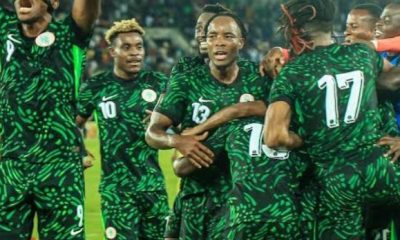

CAF awards victory to Nigeria, fines Libya $50,000 to be paid in 60 days over maltreatment of Super Eagles
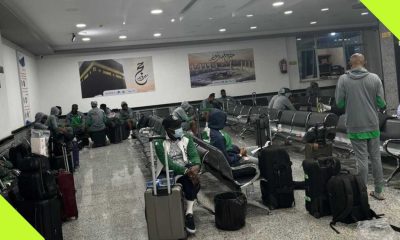

CAF awards Nigeria three points after Libya match postponement
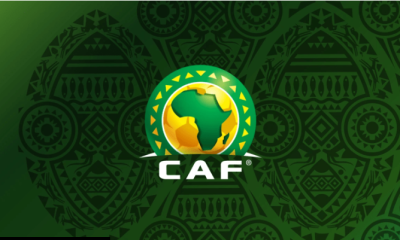

CAF awards three points, three goals to Nigeria for Libya game
Sports Minister condemns ill-treatment of Super Eagles in Libya


Libya to host Super Eagles in 2025 AFCON Qualifier
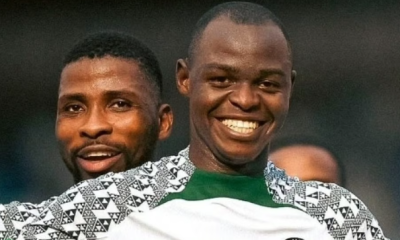

Tanimu excited about European move and National team Call-Up
Trending

 Entertainment1 week ago
Entertainment1 week agoSinger Simi faces backlash after TikToker admits to false rape allegation

 Entertainment5 days ago
Entertainment5 days agoSimi addresses resurfaced 2012 tweets amid online backlash

 Comments and Issues1 week ago
Comments and Issues1 week agoNigeria’s Declining Oil Output and Soaring Foreign Portfolio Investment Inflow

 Comments and Issues1 week ago
Comments and Issues1 week agoEx-prince Andrew’s arrest, lessons for Nigeria

 Health7 days ago
Health7 days agoSCFN, LUTH introduce bone marrow transplants as curative treatment for sickle cell

 Comments and Issues1 week ago
Comments and Issues1 week agoThe Seyi Tinubu’s jellof rice, loaves of bread

 Health3 days ago
Health3 days agoDeclassified CIA memo explored concealing mind-control drugs in vaccines

 Football7 days ago
Football7 days agoHarry Kane nets brace as Bayern edge Frankfurt 3–2 to go nine points clear

